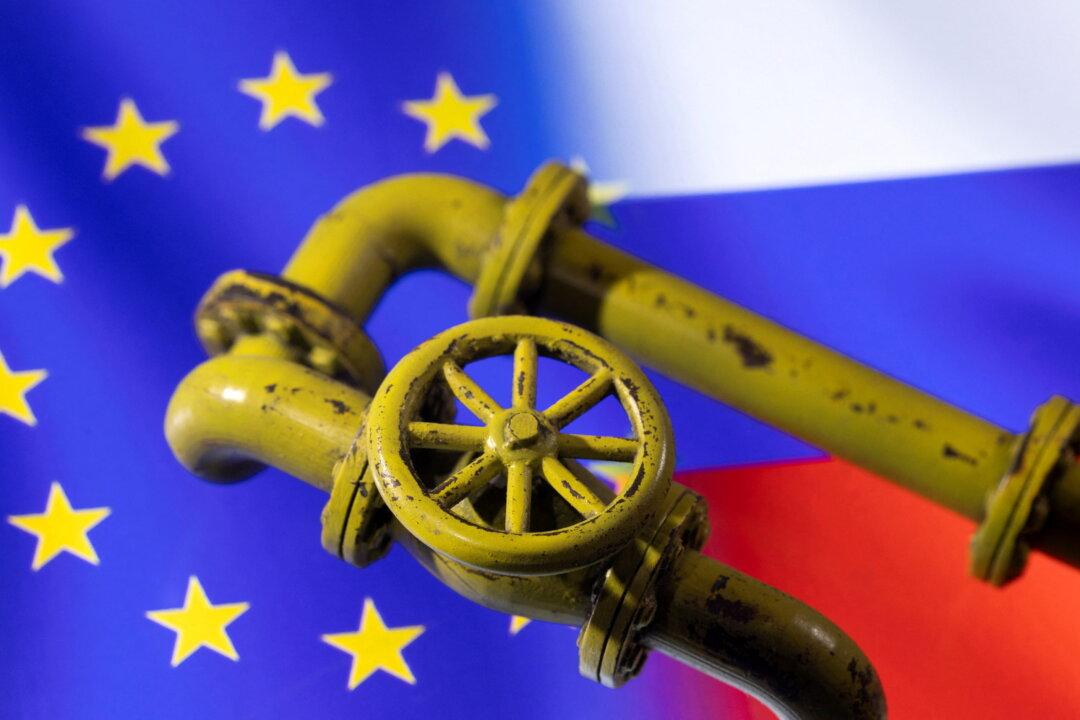Russian officials have said the country won’t immediately demand that buyers pay for its natural gas exports in rubles after President Vladimir Putin said earlier that “unfriendly” countries must do so.
Putin issued an order March 23 for Russian gas to be purchased in rubles instead of dollars or euros, directing the Russian central bank, the government, and Russian energy giant Gazprom to present proposals by March 31.




